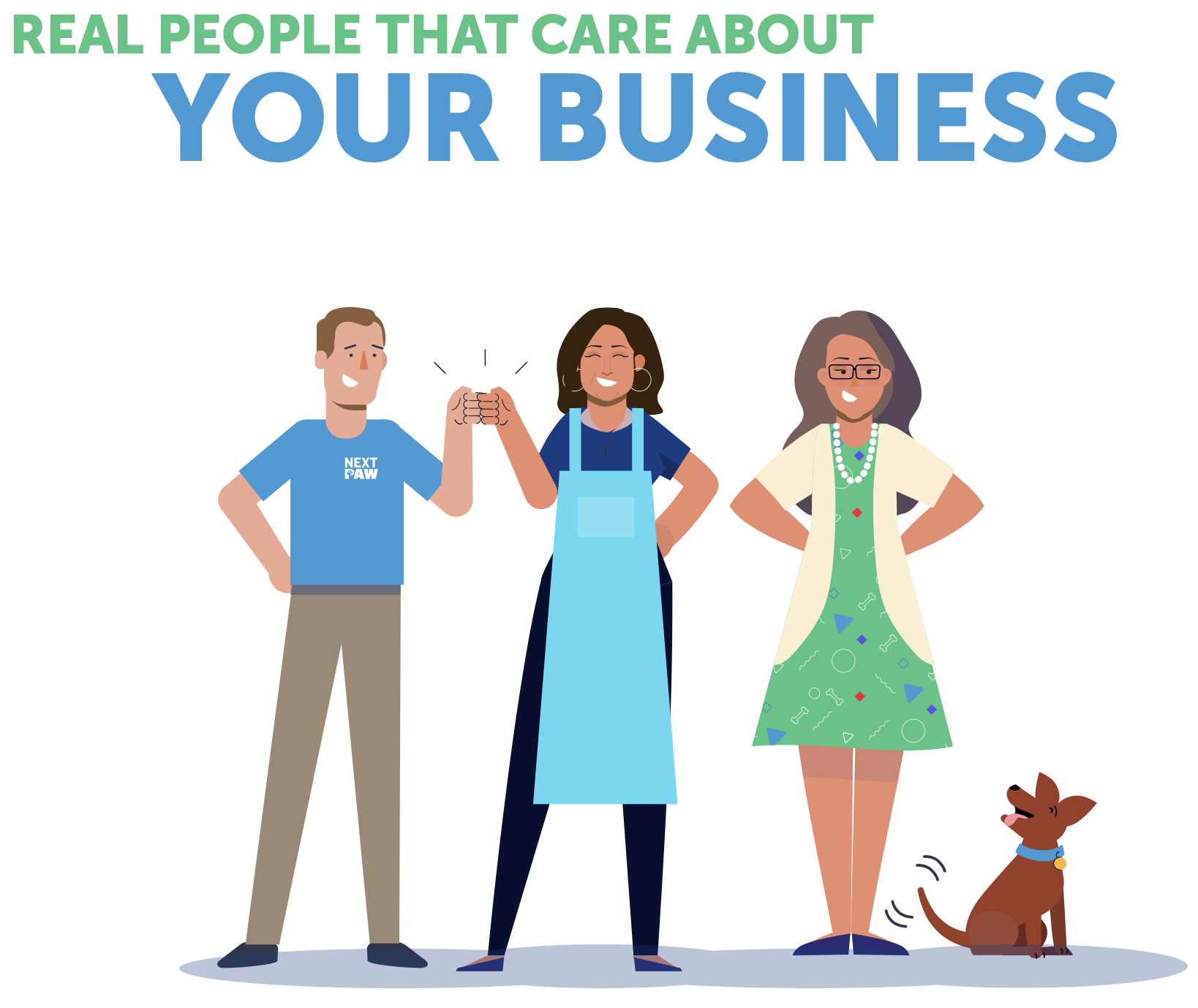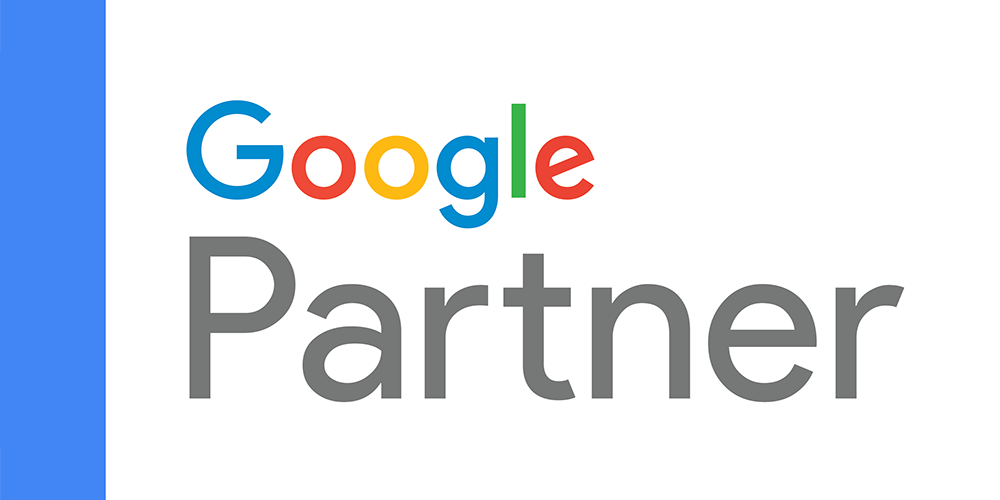For a short while, Facebook was testing a 10 point scale for reviews of Facebook business pages as opposed to the traditional 5 star system. Now, Facebook has gone in a new direction entirely. They’ve gone to a binary system of: “do you recommend this business or not?” This appears to be replacing the star-rating system entirely. The average star rating out of 5 is still currently being displayed but only takes into account past reviews and new recommendations.
Facebook has yet to open up the recommendations system API, so once the reviews system is disabled- reputation management systems will need to stay on top of things in order to continue to collect reputation data.
Rich Endorsements
The star system update is not the only thing that’s changed. In the recommendation process, customers can leave what’s called a ‘Rich Endorsement,’ which includes photos and pre-set text. This is currently only available for restaurants and coffee spots but will soon be featured for other industries. These suggested attributes or ‘tags’ make the recommendation process much simpler. This is also used by Google My Business subjective and objective attributes.
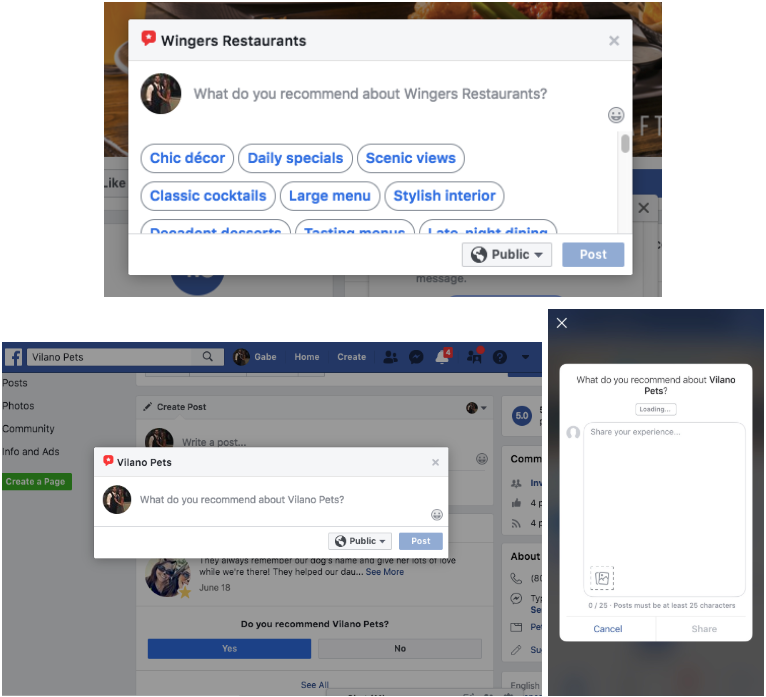
These changes have implications for businesses. Mainly in the way that businesses go about requesting and handling Facebook reviews, or more accurately- recommendations. Making a recommendation request is quicker and easier than asking customers for on online review. On the downside, the recommendation system runs the risk of only collecting polar feedback from the people with the most severe opinions of a business. It used to be that people who were unsure could simply leave a 2 or a 3 star review. With the recommendation system it’s a yes or a no and customers without a strong opinion might simply refrain from leaving a ‘recommendation’ at all.
Since the number of review possibilities has been reduced from 5, down to 2- people who are monitoring and acting on Facebook reviews and recommendations will need to pay more attention to the actual text and content of the recommendation. The content of the recommendation is where customers can bridge the gaps left by the removal of the ‘middle-lane’ 3 star ratings.
There is one more option, which is to leave a message that answers the question: “How could Widget Business improve?” These messages will be posted to the page if the user chooses to, rather than sending private feedback. Sending the feedback privately is a little more complex and involves adjusting recommendation privacy.
Facebook Recommendations and their Authenticity
There is a process for reporting fake Google reviews, but it’s rather difficult and definitely underutilized. Facebook reports that in order to preserve the ‘authenticity’ of recommendations both users and Facebook page owners will be able to report recommendations for:
- Recommendation not relevant
- Unfair recommendation
- Nudity
- Violence
- Harassment
- Suicide or Self-Injury
- Spam
- Drugs
- Hate Speech
- False News
- Unauthorized Sales
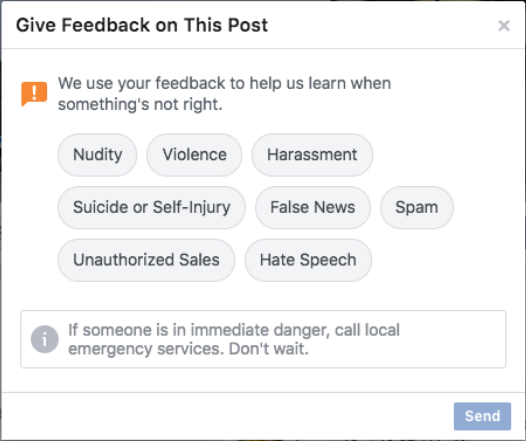
While there is nothing specific to ‘fake reviews’ but ‘unfair,’ ‘not relevant,’ and ‘harassment,’ all come to mind when you spot a fake review.
In closing, we recommend you adjust your review acquisition strategies to deal with this new change while keeping your primary focus on Google 5-Star Reviews! We will watch and see how this change impacts other reputation management tools and review growth strategies.
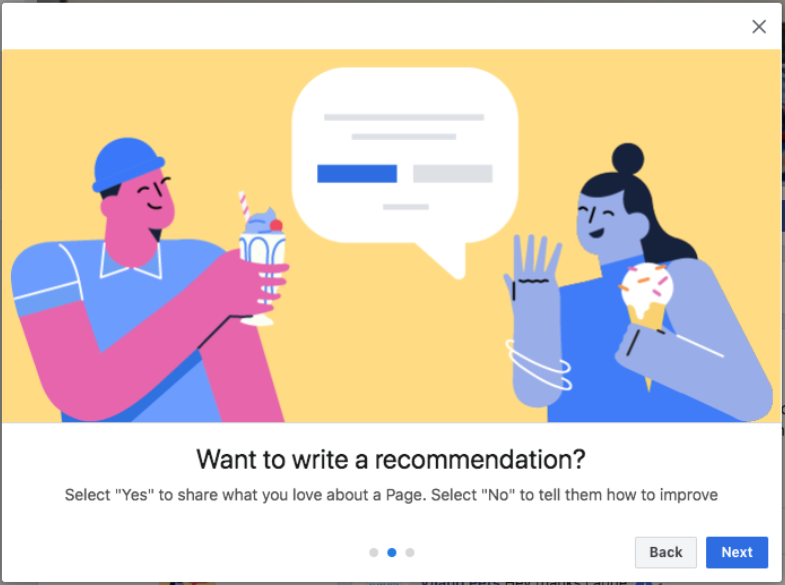
 THE COMPLETE NEXTPAW TOOLKIT
THE COMPLETE NEXTPAW TOOLKIT







